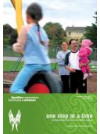This Families Commission research aims to better understand ways to support families and whānau in financial hardship, and to identify practical strategies for working with these families and whānau.
It explores, in depth, practices that community organisations use when working with families and whānau in financial hardship, and investigates how existing services can support families and whānau more effectively.
This research is interested in the role of culture, values and practices in relation to financial behaviour, and how services successfully work within a cultural context. It explores the realities of financial hardship for families, whānau and communities.
Methodology
This research took a case study approach, in order to gain an in-depth understanding of the daily circumstances of families and whānau in financial hardship; the practices and processes they believe to be supportive; and the approaches of organisations working with families and communities.
Each case involved a partnership or collaboration between the Families Commission and a community organisation. Five case studies were carried out with: Good Cents (Wesley Commmunity Action initiative, Porirua); the Anglican Trust for Women and Children (ATWC, Auckland); the Eternal Christian Fellowship Church (ECF, Auckland); Tūhoe Education Authority (TEA, Taneātua); and the Manukau Urban Māori Authority (MUMA, South Auckland). This report presents a brief summary of each of the cases.
Each study interviewed eight families or whānau, and key staff from participating organisations. Further interviews were held with community providers that the participants said were supportive. Hui, wānanga, interviews, observation, examination of documentation, focus groups, photography and diary keeping were also included in the research methods.
In order to create in-depth understanding of the stories from the whānau and the organisations supporting them, a Kaupapa Māori research process was developed for the TEA and MUMA case studies. This process enabled the whānau and their organisations to draw on, describe and contextualise their worlds through the use of familiar iwi and Māori knowledge, concepts and processes.
Successful support mechanisms to help families and whānau in financial hardship were identified and analysed within and across the five cases.
Key Results
- During this research it became clear that the concept of ‘financial hardship’ creates a deficit view when looking for solutions. In addition, there is a stigma associated with financial hardship that makes families reluctant to seek support. It is better to focus on how to best build on the families’ strengths, and on the concept of ‘financial wellbeing’.
- Support is most effective when it is ‘inside out’ (driven from within a group or community) instead of ‘outside in’ (driven from an agency external to the community). This means support is not an ‘add on’ but is an integral part of a community’s practices. Working from within whānau or community builds resilience and strength.
- Previous Families Commission research identified that whānau resilience is strengthened when whānau can use their cultural, social, economic and environmental resources. In the Tūhoe case study, it is through transmission of Tūhoetanga that these whānau access a wealth of cultural, social, economic and environmental resources, both as Māori and as individual citizens of Aotearoa New Zealand. This means that Tūhoetanga is the foundation through which Tūhoe whānau choose whether or not to engage with mainstream services.
- The research indicated that financial knowledge is not a ‘magic-bullet’ solution. Some participants said they would have ‘done it anyway’ (spent money they did not have) even if they had known better. It is necessary to look at other drivers for change, such as increasing self-worth or teaching from a cultural or biblical basis.

